Filtered By: Newstv
NewsTV
Pang-o-tub: The tattooing tradition of the Manobo
In the heart of Arakan Valley in North Cotabato, small Manobo communities have existed silently for years, planting corn and tending banana trees for a living. This is their ancestral domain and they consider themselves the first people on the land.
Like many other indigenous groups, the Manobos of Arakan are fighting hard to keep their ways and traditions alive. And one of the traditions said to be slowly disappearing is tattooing.
The Manobos call tattooing pang-o-tub. In the book "The Manobos of Mindanao" by John M. Garvan, he wrote that during the Spanish period, tattoos served as a permanent identification of captives who changed their names when they are sold and resold. Garver also wrote that tattooing among Manobos is mostly ornamental and does not represent any spiritual or magical attributes.
The Reel Time photo-documentary ‘Burdado’ takes an intimate look into the Manobo tradition of pang-o-tub. Here, tribe leaders contradict most of Garvan’s statements and declare that their tattoos go beyond decorating the body.
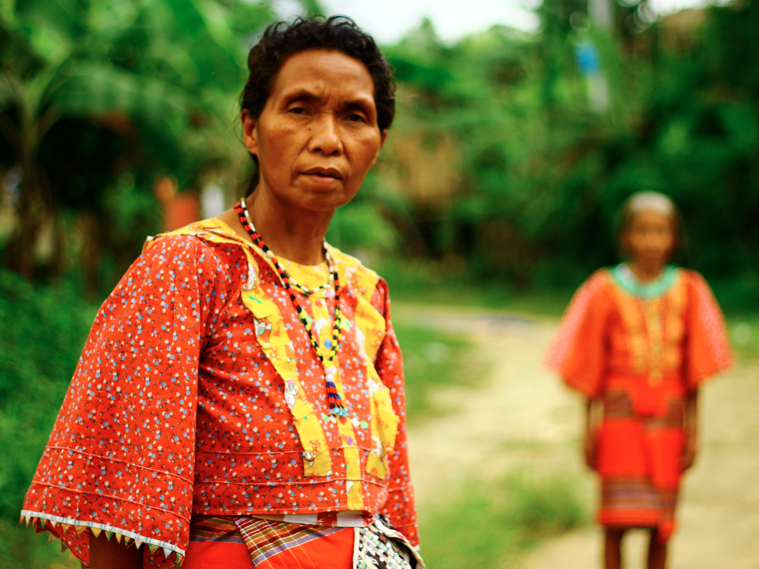
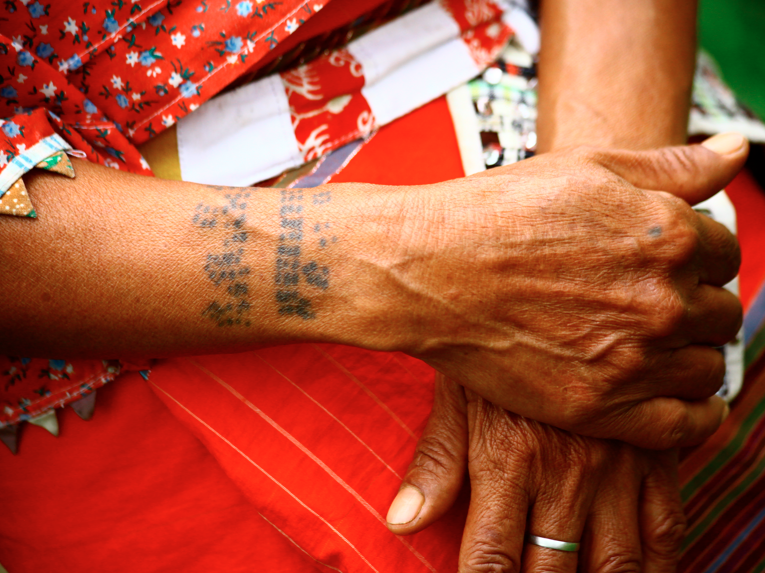
They say the tradition has existed for thousands of years. Tattoos serve as an identifying mark of the tribe. “Kapag may tato ka, ibig sabihin totoong katutubo ka,” said tribe leader Datu Antayan Baguio.
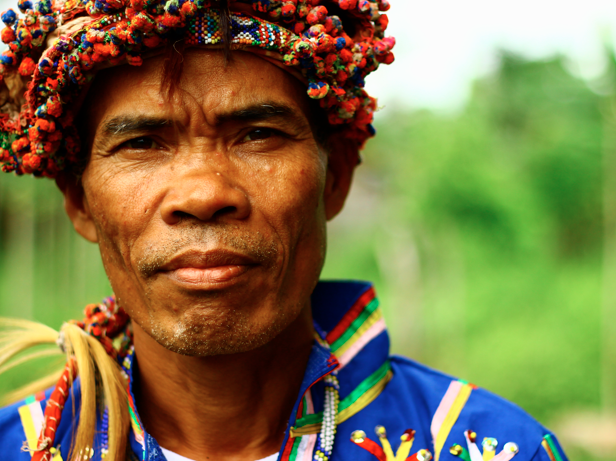
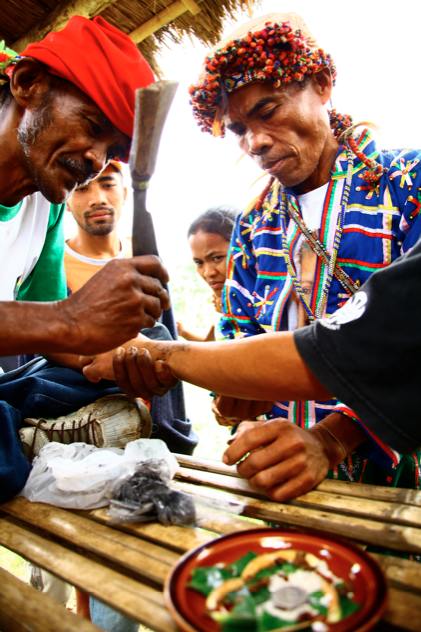
Before tattooing, the leaders say a little prayer to Manama, the God of the Manobos. The process doesn’t take long. The skin is punctured using a blade called burong.
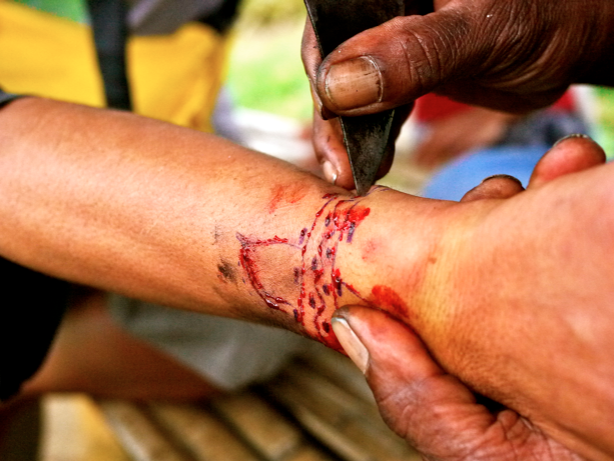
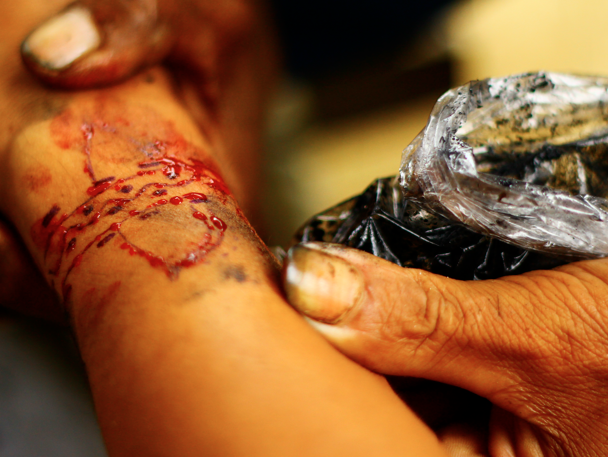
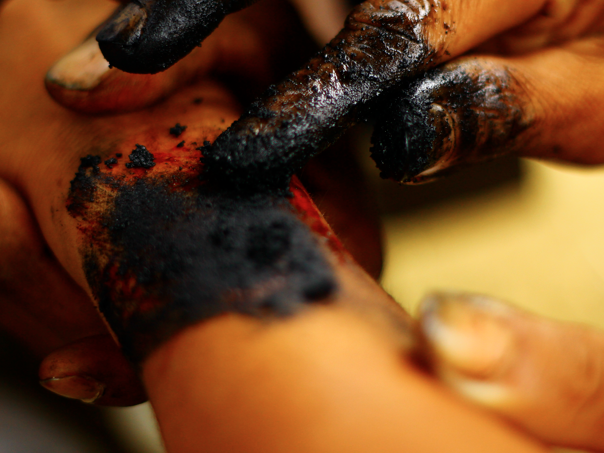
The black pigment comes from the soot of a burnt hardwood tree called lawaan. This is wiped over the wound and won’t be washed off for a week.
Tattoos are supposed to give the Manobo strength. They say a tattooed Manobo does not tire easily, even after a whole day’s work in the fields.
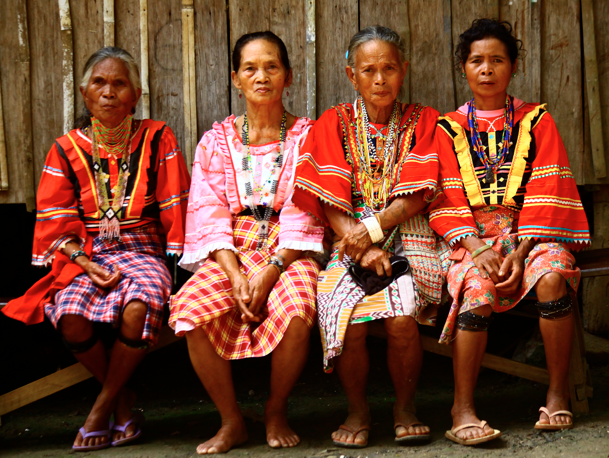
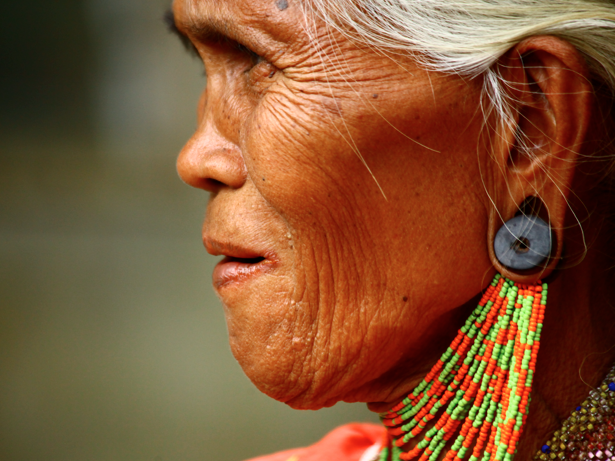
These Matigsalug-Manobo women hail from the town of Sumalili in Arakan. They are some of the few women left with tattoos around their bellies. They got the tattoos decades ago while they were pregnant, when the belly and the skin were most taut.
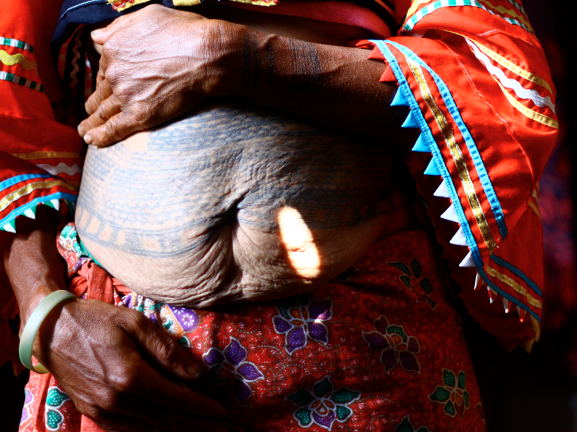
They say tattoos "complete" their womanhood and symbolize strength. Even then, not all women could withstand the pain of their bellies being slit open.
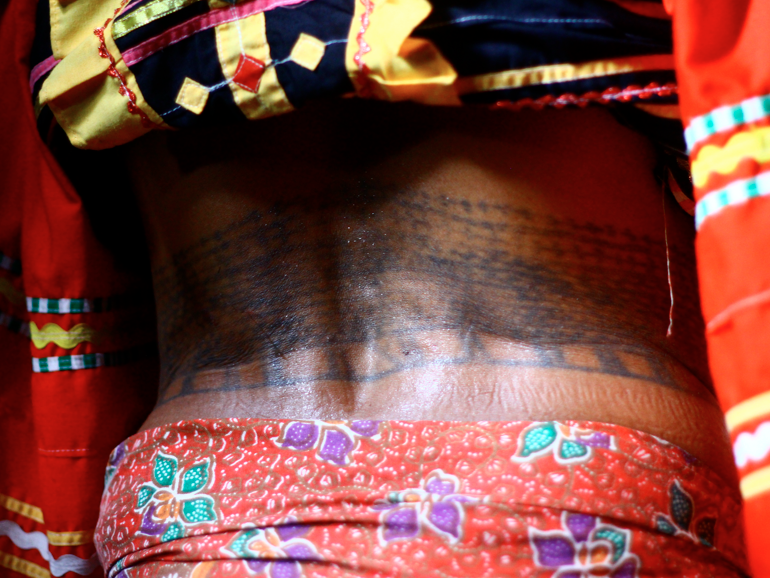
The Manobo tattoos' significance and purpose also go beyond the physical world. They believe that one’s tattoo serves as a guiding light in the afterlife. “Kapag namatay ka, madilim ang lahat. 'Yung tattoo, parang ilaw na magdadala sa iyo sa lugar kung nasaan ang mga ninuno,” describes Datu Baguio.
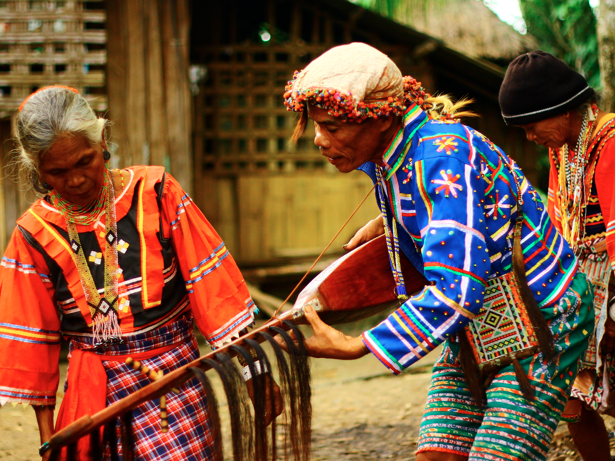
Tattooing is not a common practice among the Manobo youth anymore. Still, Datu Baguio and the other tribe elders tirelessly push the pang-o-tub and their other customs forward. The people may live and die, tribe members come and go, but their traditions should live forever. — Photos by Karla Rimban and Billy Chavez/Alyx Ayn Arumpac/CM, GMA News
More Videos
Most Popular



